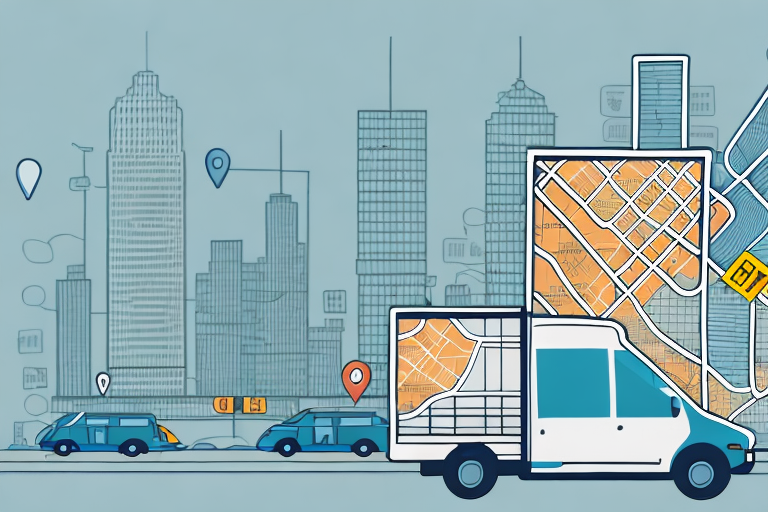Unlocking the Benefits of Last Mile Tracking
In today’s fast-paced and competitive world, businesses must continuously enhance their delivery and logistics operations to meet customer demands. Last mile tracking, which monitors the final leg of product delivery, has become a pivotal component in the logistics process. By leveraging last mile tracking, businesses can uncover inefficiencies, optimize their delivery routes, and ultimately improve their overall operations. This article delves into the myriad benefits of last mile tracking and how it can transform your business.
Why Last Mile Tracking is Essential for Your Business
The last mile of delivery is often the most critical and complex segment of the logistics journey. It involves delivering the product directly to the customer’s doorstep, making it paramount for maintaining customer satisfaction and loyalty. Effective last mile tracking provides businesses with insights into delivery process efficiency, accuracy, and potential bottlenecks, enabling proactive measures to mitigate delays and errors.
Enhancing Delivery Efficiency
By analyzing data from last mile tracking, businesses can optimize delivery routes and schedules. This optimization can lead to faster delivery times, reduced fuel consumption, and lower operational costs. For instance, a study by ShipScience Logistics Report (2023) indicates that route optimization can decrease delivery times by up to 20%, significantly enhancing overall efficiency.
Cost Reduction Strategies
Last mile tracking helps identify the most cost-effective delivery methods and routes. By minimizing fuel usage and reducing the number of failed delivery attempts, businesses can achieve substantial cost savings. Additionally, accurate delivery tracking reduces the need for returns and replacements, further lowering expenses.
Improving Customer Satisfaction Through Last Mile Tracking
One of the standout benefits of last mile tracking is the enhancement of customer satisfaction. By providing real-time updates on delivery status, businesses can keep customers informed and reduce anxiety related to package delivery times. This transparency not only improves the customer experience but also strengthens brand perception and loyalty.
Real-Time Updates and Communication
Customers appreciate knowing the exact status of their deliveries. Last mile tracking systems offer real-time updates, allowing customers to track their parcels through mobile apps or websites. This level of communication can lead to higher satisfaction rates and fewer customer service inquiries.
Proactive Problem Solving
Last mile tracking enables businesses to anticipate and address potential delivery issues before they escalate. For example, if a delivery vehicle encounters unexpected delays due to traffic, the system can notify the customer and provide an estimated new delivery time, thereby maintaining trust and satisfaction.
The Role of Technology in Revolutionizing Last Mile Tracking
Advancements in technology have significantly transformed last mile tracking, making it more efficient and reliable. Innovations such as GPS technology, mobile applications, and automated delivery systems are at the forefront of this revolution.
GPS and Real-Time Data Analytics
GPS technology allows for precise tracking of delivery vehicles in real time. Coupled with data analytics, businesses can gain deep insights into delivery patterns, traffic conditions, and customer preferences. According to a report by ShipScience Tech Innovations (2023), companies utilizing GPS and data analytics have seen a 15% improvement in delivery accuracy.
AI and Machine Learning Enhancements
Artificial Intelligence (AI) and machine learning algorithms enhance last mile tracking by predicting delivery times, optimizing routes dynamically, and automating various aspects of the delivery process. These technologies enable businesses to make informed, real-time decisions that enhance efficiency and customer satisfaction.
Best Practices for Implementing Last Mile Tracking
To maximize the benefits of last mile tracking, businesses should adopt best practices that ensure effective implementation and sustainable operations.
Partnering with Reliable Logistics Providers
Collaborating with experienced and reliable logistics providers is crucial for successful last mile tracking. These partners bring expertise, advanced technologies, and proven strategies that can enhance your delivery operations.
Integrating Tracking Software with Existing Systems
Seamless integration of tracking software with your current delivery systems ensures smooth operations and data consistency. This integration facilitates better coordination, data sharing, and overall efficiency.
Prioritizing Data Security
Protecting customer and business data is paramount. Implement robust security measures to safeguard tracking information, ensuring that data is stored securely and accessed only by authorized personnel. This approach builds trust and complies with data protection regulations.
Real-Life Success Stories of Last Mile Tracking
Numerous companies have successfully implemented last mile tracking, reaping significant benefits. For example, Amazon utilizes automated delivery systems and robotics to streamline their last mile delivery, reducing delivery times and enhancing efficiency. Similarly, Domino’s Pizza employs GPS-enabled delivery vehicles to provide real-time tracking for their customers, improving delivery accuracy and customer satisfaction.
The Future of Last Mile Delivery and Tracking
The future of last mile delivery is poised for further innovation and improvement. Emerging technologies such as drones and electric vehicles are set to revolutionize the delivery landscape. Additionally, advancements in AI and machine learning will continue to enhance tracking accuracy and delivery efficiency. Sustainability remains a key focus, with businesses increasingly adopting eco-friendly delivery methods to meet consumer demand and regulatory requirements.
In conclusion, last mile tracking offers a wealth of benefits, including enhanced delivery efficiency, reduced costs, improved customer satisfaction, and valuable data insights. By implementing best practices, leveraging advanced technologies, and learning from successful case studies, businesses can harness the full potential of last mile tracking to gain a competitive edge in the market.




















